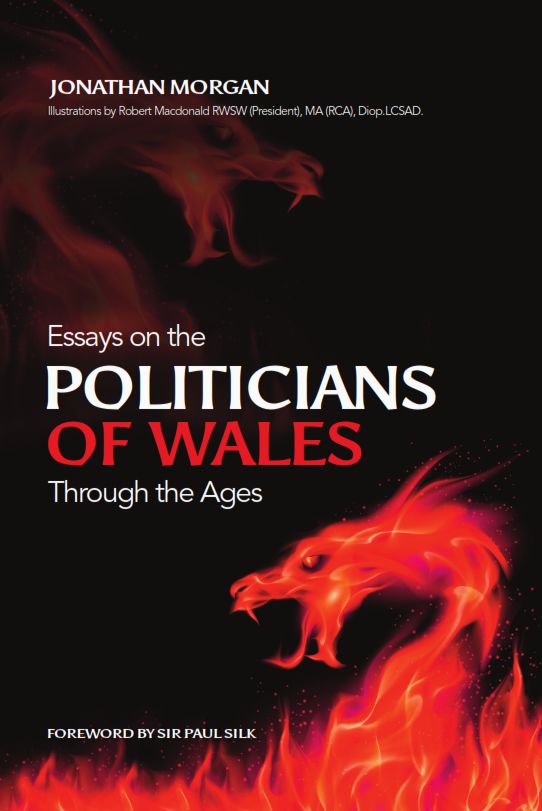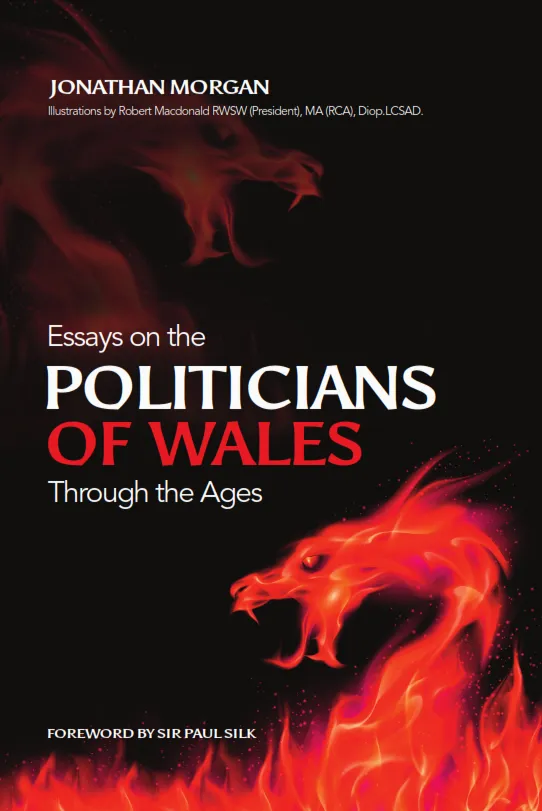MARGARET HAIG THOMAS (LADY RHONDDA)
This only daughter of the immensely wealthy industrialist and politician DA Thomas and Sybil Haig Thomas of Llanwern was the secretary of the Newport branch of the suffragette Women's Social and Political Union. She was arrested after setting a letterbox alight in Newport. She smuggled her ammunition in a flimsy covered basket as she travelled home from London, - surely for the only time in her life - in a third-class railway carriage. Her arson attack was noticed and she was briefly imprisoned that summer.
She responded by going on hunger strike while in Usk Goal for her militant suffrage activity.
In 1926, the year of the General Strike, as a director of a number of coal companies, the strike had a big impact on Margaret, and her values of fairness.
During that year she was elected as the first sole female president of the Institute of Directors, a position she held for a decade. At this time, she became a key figure in the revival of pressure for extending the vote for all British women and she and Mrs Pankhurst (recently returned to London after running a teashop in the south of France) spoke at what proved to be the last mass demonstration in London for equal rights. Margaret chaired the group organising it and helped to orchestrate the activities that culminated in the equal franchise legislation of 1928.
Also, in 1926 she became editor of Time and Tide, the weekly review she had founded in 1920 and funded for the rest of her life. One of the most innovative, imaginative and adaptable of papers, it reflected the views of the newly enfranchised women over 30. She remained editor until her death in 1958.
In 1950 she became the first woman president of a Welsh college, the University College of South Wales and Monmouthshire, the forerunner of Cardiff University. For years she had advocated higher education as of huge importance to young women. She was a remarkable lady but had the good luck to be born into a very rich family and she used those riches wisely.
AMY DILLWYN
She was a cigar smoking cross dressing change maker, a trail blazing radical ahead of her time, a woman who became a legend in her lifetime. She was a bestselling novelist, pioneering industrialist, and campaigner for the rights of women and social justice. She wrote 6 novels, her themes included feminism, social reform, and a favourable view of the Rebecca Riots in response to unfair taxation. Following her father's death in 1892 Dillwyn inherited his spelter works at Llansamlet and his debts. She personally managed the industry and by 1899 had fully repaid her father's debts. In 1902 she turned her business into a registered company. She joined the National Union of Womens Suffrage Societies and continued campaigning for women’s suffrage. She was presented at Queen Victoria's court as the daughter of a radical Swansea MP and friend of the Prince of Wales. She was never married, but considered herself married to a wife, Olive Talbot. She wore a bright purple skirt with a yellow rose in her belt and flowers in her hat at her father's funeral and was in general a flamboyant dresser. She was a great flag carrier for the women of Wales.
ROSEMARY CRAWSHAY
nee YEATES 1828 – 1907
Wife of Robert Thompson Crawshay who was buried at Vaynor churchyard with 'God Forgive Me' as his self-styled epitaph on his grave. She outlived her husband (they were married in May, 1846) by some twenty-five years, spending her latter years wintering on Lake Como in Italy.
She was her own person, a pioneer in many ways, starting up soup kitchens to feed the poor and contributing to a society in London to train girls ready for domestic service; she recognised the value of good literature and introduced prize schemes to encourage reading. The Rosemary Crawshay Prize in Literature is still being awarded to this day and she served as one of the first females on school governing bodies from 1871 onwards; she was a controversial supporter of the method at death of cremation; she was an early supporter and sympathiser of what became the suffragette cause (though she would not have been impressed by the increasing violence of the Pankhursts campaign from 1905 onwards) where she organised, chaired and spoke at the first suffrage meeting in Wales on 3rd June, 1870 at Merthyr Tydfil's Temperance Hall; vice president from the early 1970s for some thirty years of a suffrage organisation.
References:
Angela V John, Rocking the Boat: Welsh Women Who Championed Equality 1840-1890 (Cardigan, Parthian 2018)
Angela V John, Turning the Tide: The Life of Lady Rhondda (Cardigan, Parthian 2013)
Ryland Wallace, The Women's Suffrage Movement in Wales 1866-1928 (Cardiff, University of Wales Press 2009)



